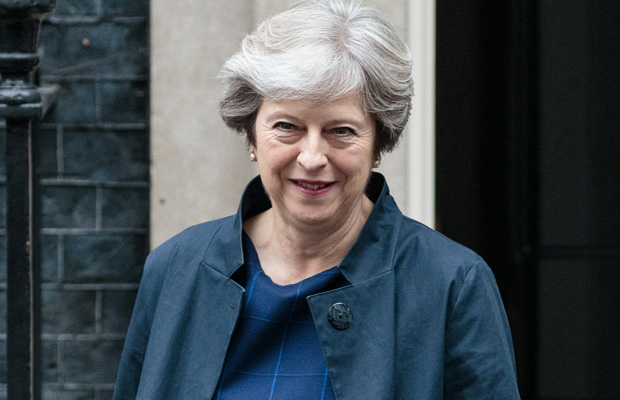What does Theresa May actually want?
Theresa May comes into this summit deeply disappointed at the EU’s lack of haste in talks and its stubborn refusal to move on from discussing exit terms to trade talks.
But imagine this.
Theresa May is sitting in the dinner tonight and when her moment comes to address the other EU leaders makes a compelling case for the progress the UK has made in Phase 1.
The EU27 wilt under the power of her argument. They’re not meant to respond in the room, they’ve all agreed to save their thoughts for the next morning when they meet as 27, Britain outside the room.
But they look across at each other, one by one, they shrug their shoulders and then one of them, maybe Angela Merkel, looks around seeking consent.
The German Chancellor brings the microphone closer and addresses Theresa May: “That was a compelling presentation. If I judge the mood of colleagues correctly, I speak for everyone when I say let’s move on to Phase 2 and the future relationship. All you need to do is to tell us, right now, what it is you want that to look like and we will start the process. Theresa May, the floor is yours.”

What does Theresa May say?
She gulps. She pauses. Maybe she coughs. And then come some familiar words.
“We seek a new framework that allows for a close economic partnership but holds rights and obligations in a new and different balance, a new deep and special partnership.”
The 27 look across at each other but keep listening.
“We want an ambitious, comprehensive partnership … something that reflects our existing cooperation.”
Arched eyebrows are exchanged, one gestures for Chancellor Merkel to bring the session to a close and she pulls the microphone over again.
It could be the stuff of Theresa May’s pre-summit nightmares.
Theresa May is presiding over a Cabinet that pulls in two different directions on the UK’s future in Europe and has yet to settle the line on what Britain wants.
On one side, the Chancellor and his allies think the UK needs to be as close as possible to the EU, which means following EU rules without being in the room when they are made. EU officials say they hear his voice wafting across the Channel but struggle to believe that a country like the UK will be comfortable in such a state.
They also hear the more strident Eurosceptic voices talking of a “walk-out” and saying all we need is a Canada-style Free Trade Agreement. We don’t want anything closer as the point of Brexit was to break free.
They wonder if Theresa May can bridge these gaps but the Prime Minister still retains respect in this city. One EU official said: “We’d like more consistency, but she stepped up and took over the mess. There is some good will. Send us Boris Johnson and it won’t be pretty.”
British sources say it’s worth focusing on how the next stage of negotiations poses more difficulties for the EU27 than Phase 1.
“All sorts of interest groups within the 27 will start putting pressure on governments to keep trade easy and smooth,” one UK official said. Diplomats are clearly already focused on this and trying to stir up trade groups with relevant interests in some EU27 countries.
But one EU official in Brussels said those interest groups will have less influence than they might on national governments because the UK’s more strident anti-EU voices keep putting the UK in a bad light.
In Brussels they think the only way the talks move on in December is if the UK signs up to “headings” in the exit bill spreadsheet that it is willing to pay up on.
The Times’ story this morning showing a £6b gap between the UK and EU calculations of one of those headings, pensions liabilities, gives you a flavour of the perils of that path. The letter from former Cabinet ministers urging a walk-out indicates the continuing pressure Theresa May is under from her own Brexiteers.
The shape of the transition that emerges from the EU27 discussions over coming weeks will probably antagonise those Brexiteers even more.
One EU source said there was no chance of a waiver for the Common Fisheries Policy as Michael Gove has asked for, and no chance of a phasing out of the ECJ jurisdiction during a two to three-year transition.
The UK will be heavily trying to influence the guidelines the EU27 will now draw up on transition and future relationship.
If they’re brutally binary and more than Theresa May can sell or swallow December’s summit could be the start of a new level of acrimony rather than a glide path to the happy uplands of a mutually satisfactory deal.
